J. Lindner, N.
Nowack, W. Heckmann:
Summary
Subjective and objective changes in the care of chronically handicapped
patients before and after German re-unification - shown by the example
of a residential psychiatric home in the territory of the former German
Democratic Republic (GDR).
In the GDR, chronically handicapped psychiatric patients
(or chronic psychiatric patients with multiple disabilities) often had
to live in bed halls of huge long-term institutions. Since German re-unification
the situation has been improved by newly-built decentralized complementary
institutions and homes (normally with single and double rooms only). But
the question is: how do the patients see their situation in respect of
care and treatment retrospectively (in GDR times), and how do they see
it now?
A survey was carried out with a group of 21 patients living in a home
built in Salzwedel in 1995. The institution offers numerous forms of rehabilitation,
including sociotherapeutic and relationship-oriented measures, in suitable
rooms. All the respondents had lived as in-patients in facilities in Saxony-Anhalt
before 1989, in some cases for many years. Although 72.7% felt they had
been treated with respect under the GDR regime, only 9.1% said their private
sphere had been respected in the past (as opposed to 81% in the new residential
accommodation). 55% said they had not been allowed to participate in relevant
decisions before 1989 as compared to 12.6% at the time of the study.
28.6% said they had been under "very strong" or "strong"
tutelage in GDR psychiatric institutions (as against 0% in the present
home). But just as many patients (28.6%) felt they had not been under
tutelage at all in the GDR (and 42.9% said they did not feel under tutelage
at all now).
Only 9% of the respondents said they had experienced social discrimination
in the GDR. But none of the respondents felt discrimination existed now.
33.3% rated psychiatric care in the GDR as good, none as very good, and
23.8% as poor. By contrast, 61.9% rated their current situation in respect
of care as very good and 19% as good; none of the patients felt it was
poor.
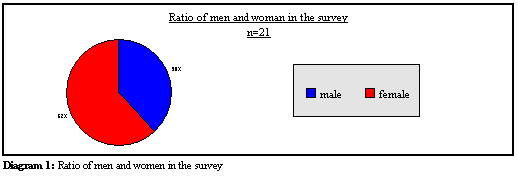
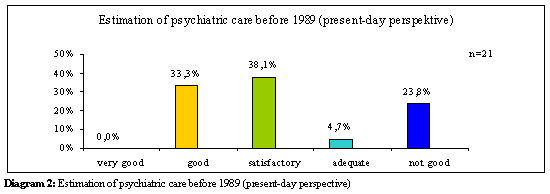
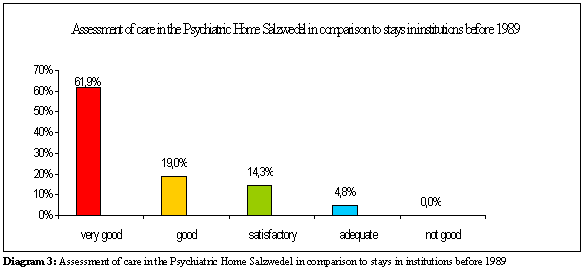
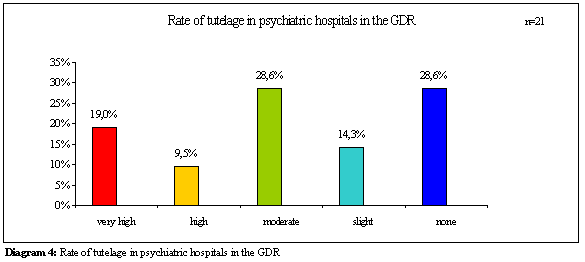
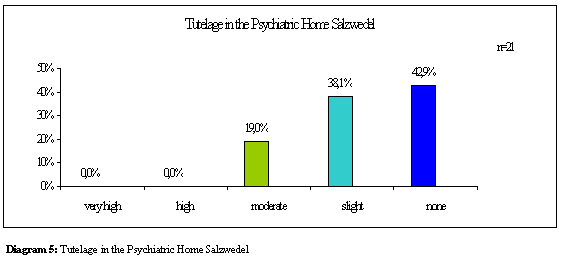
(From a poster presentation / book for „The subjective side of schizophrenia“, 2nd conference, Hamburg, March 1 – 3, 2000 at Eppendorf University Hospital, Department of Psychiatry and Psychotherapy, Hamburg, Germany)
Korrespondenz-Adresse:
Dr. med. N. Nowack
Ärztlicher Leiter
Zentrum für Soziale Psychiatrie Salzwedel
Hoyersburger Str. 60
D - 29410 Salzwedel
eMail:
psych-ph-saw@t-online.de